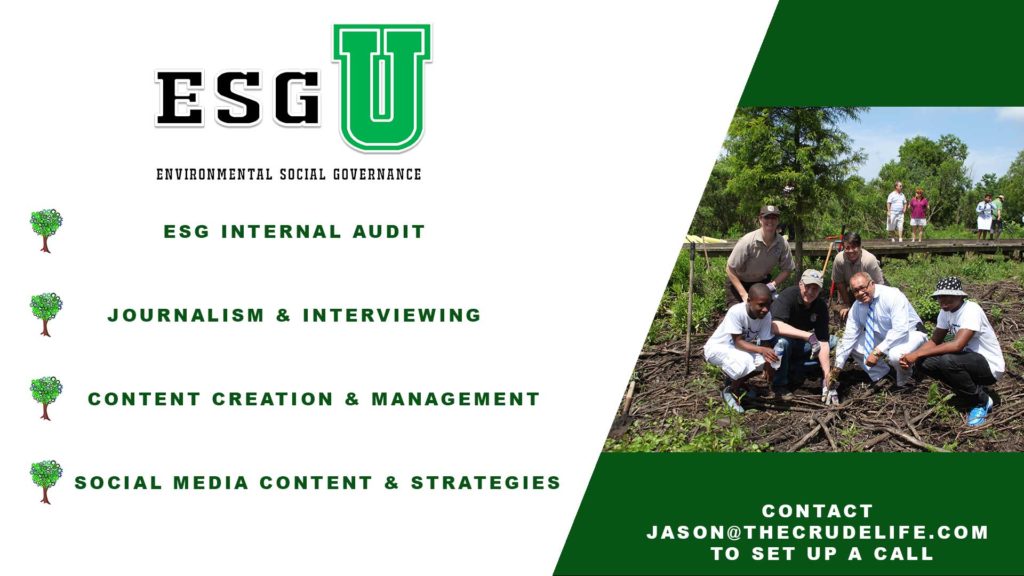
But let’s be real about this next reason… or plural – reasons. Traveling, being out of the routine and meeting new people while having new discussions can become hard work very quickly and time becomes a precious and valuable resource. It is almost like taking on new stress and experiencing emotional engagement can impact your work and home life more than working overtime at the home office.
One of the primary functions of media is to be the eyes and ears for the people. The busy, busy distracted people.
Thus the quickie ESG Classroom Column this week.
When I began speaking publicly about ESG-related issues in 2016 and the development of a formula with subject platitudes and emotional entitlement over verified science it was a different world. Back then, it was Elizabeth Warren, Sierra Club and a Pre-SB181 Colorado as my primary examples.
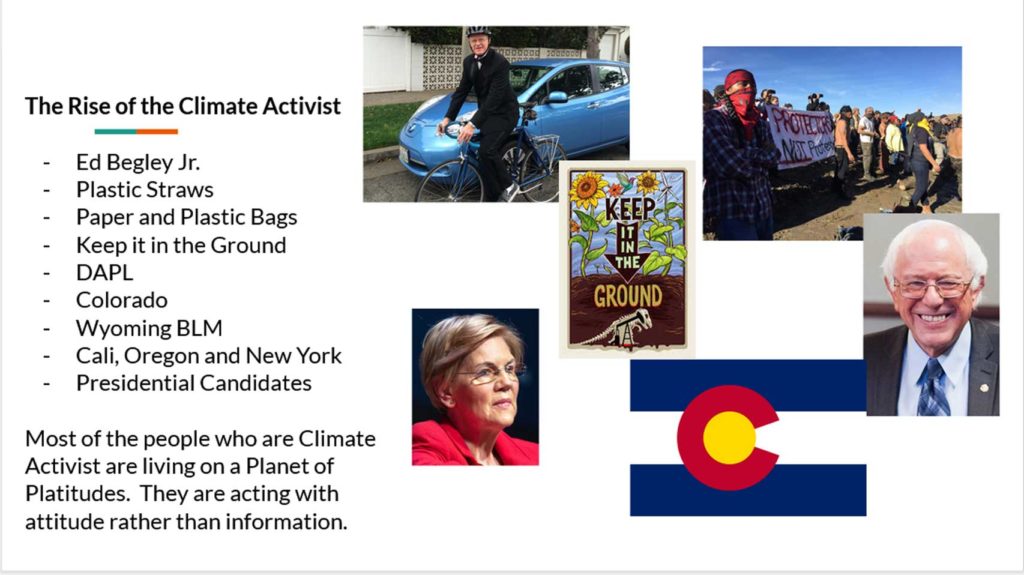
That’s right class, when I began speaking about this, Greta Thunberg wasn’t even a mascot for the Environmental Activists, and Colorado was still oil and gas friendly.
In 2015, I began noticing that more and more people in Colorado hotel breakfast bars were looking over their shoulder to tell me, a stranger, that they worked in oil and gas. It was very noticeable they didn’t want anyone else around to know they worked in the industry.
So I began speaking, and even warning, oil and gas professionals at trade shows, conferences and any C-Suite executive I could get in front of that this ESG movement is coming and it is a slippery slope of “manufactured consent” and could become very problematic for the industry, especially fossil fuels.
Since this column is now being published in other media outlets than The Crude Life I will keep it professional, however, let’s just say when I spoke about this impending issue at conferences or to publicly-traded oil and gas executives or to government employees they told me to go find the nearest lake and or bridge and jump accordingly. Honestly If I took out the colorful language directed at me or my character, it wouldn’t even be a sentence anymore.
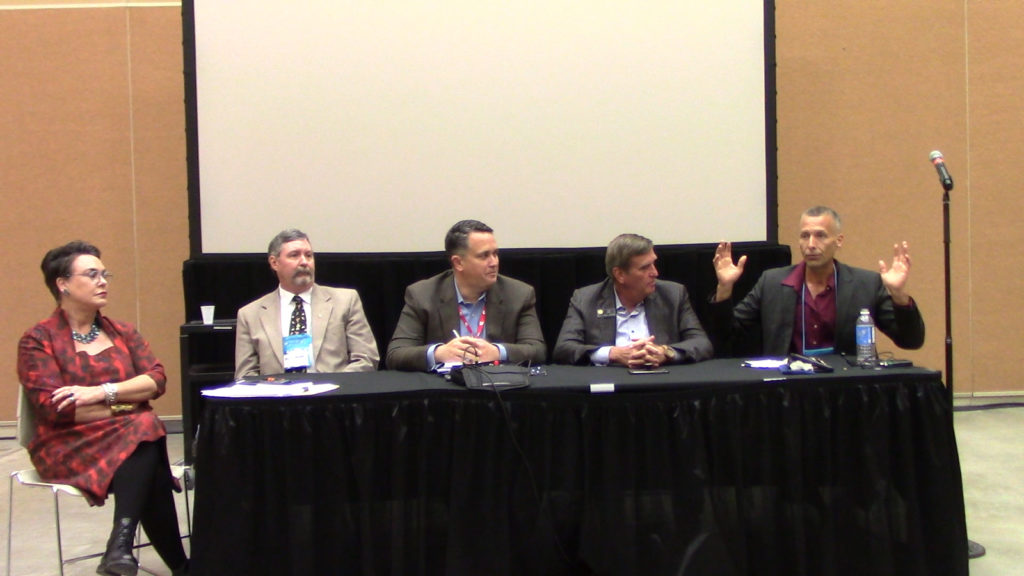
So what are others in the media and others saying in April of 2022 about ESG? Let’s take a look with a random search engine under ESG News.
Richard Morrison writing on the topic for Capital Matters
This is a major move for the agency, which had previously tried to avoid taking sides in politically contentious public-policy debates. The SEC’s proposal would be difficult, on any reasonable interpretation, to square with the exercise of its normal authority over financial markets, and is yet another troubling example of regulatory mission creep. It is also a disappointing and alarming development for those who care about property rights and a competitive, growing economy …
And Rupert Darwall in The Hill
“Let us be honest about what this proposal is really trying to do,” [dissenting SEC commissioner’] Hester Peirce writes. “Although styled as a disclosure rule, the goal of this proposal . . . is to direct capital to favored businesses and to advance favored political and social goals.”
Climate disclosure is not, as the SEC claims, about giving investors information about climate risk. Rather, its main purpose is to force companies to provide information on their greenhouse gas emissions and those of their suppliers and customers so that shareholders, interest groups and others can enforce net-zero targets on them through proxy votes and other forms of engagement …
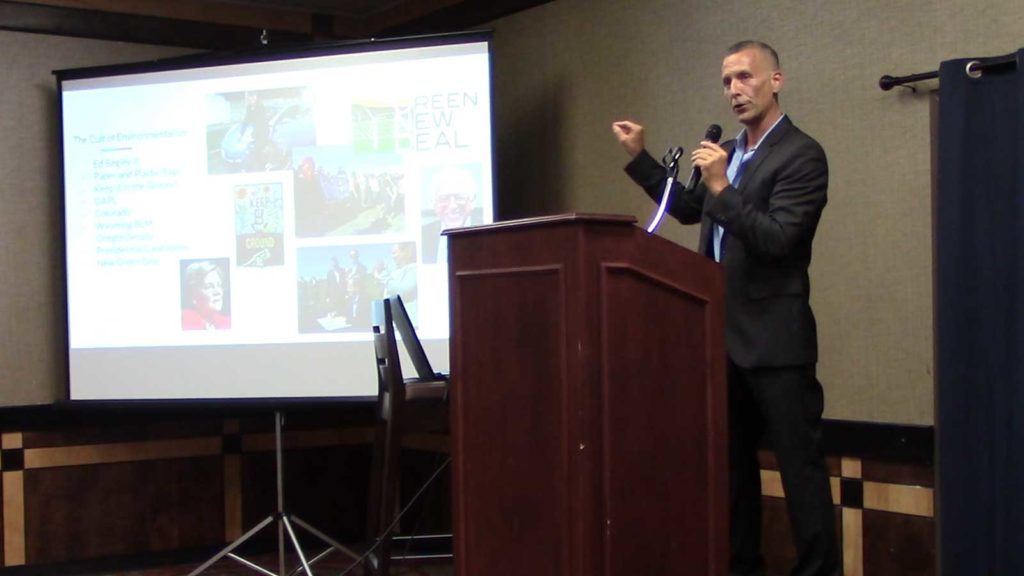
New York University finance professor Aswath Damodaran has a thought on “ESG investment disciplines”.
I believe that ESG is, at its core, a feel-good scam that is enriching consultants, measurement services and fund managers, while doing close to nothing for the businesses and investors it claims to help, and even less for society.
Damodaran continues and reminds his audience that one of the ESG platitudes is that by encouraging good corporate behavior, however, does it really insulate shareholders in high ESG-scoring companies from wars, political corruption and other evils of society?
There is no evidence that Russia-based companies had lower ESG scores than companies without that exposure. In my last post, I looked at four Russian companies, Severstal, Sberbank, Yandex and Lukoil, all of which saw their values collapse in the last few weeks. When I checked their ESG rankings on Sustainalytics ranked each on February 23, 2022, each of them was ranked in the top quartile of their industry groups, though they all seem to have been downgraded since, with the benefit of hindsight.
It is true that the emphasis on climate change that skews ESG scores lower for fossil fuel and mining companies would have kept you from investing in Lukoil and Gazprom, among other Russian commodity companies, but it would also have kept you from investing in other companies in these sectors, operating in the rest of the world. As I noted in my last post on Russia, that would have kept you out of the best performing sector sincehttps://www.bloombergquint.com/onweb/esg-funds-had-8-3-billion-in-russia-assets-right-before-the-war Russia invaded Ukraine. In short, if there is a lesson that this crisis has taught us, it is that treating fossil fuel producers as evil, when they produce much of the energy that we use, is delusional.
Meanwhile, over at Bloomberg.
A Bloomberg Quint study of ESG funds uncovered that they had $8.3 billion invested in Russian equities on February 23, 2022, almost all of which was wiped out during the next few weeks. In fact, the saving grace for ESG funds has been the fact that Russia did not have a large investable market, for both ESG and non-ESG funds . . .
For those who continue to insist that the corporate reaction [companies leaving Russia] to the . . . invasion is a sign of moral awakening at companies, I propose a thought experiment. If China had invaded Taiwan, do you think that companies would have been as quick to abandon their Chinese holdings and business? Do you think that investment funds would have been so quick to write off their Chinese holdings? On a more personal level, would you be willing to give up all things “Chinese”, as quickly as you were willing to give up drinking Russian vodka? They are hypothetical questions, but I think I know the answer.
From the Federal Reserve of Dallas Quarterly Survey of 200 Energy Companies, this is from their Special Questions section.
The U.S. needs to increase production by about two million barrels per day to balance global supply and demand in 2023. It is looking unlikely that this will happen, which will result in sustained higher energy prices until the American consumer is pushed into a recession. The industry leadership continues to be lackluster, swinging from demands for proration in 2020 to demands for the administration to call them to increase production in 2022. The compelling future of the upstream business needs to be to grow production to meet worldwide demand during the energy transition while maintaining returns on capital employed and the world’s highest environmental, social and governance (ESG) standards. Unfortunately, no leaders have this thesis.
And even Elon Musk is starting to comment on ESG.
I am increasingly convinced that corporate ESG is the Devil Incarnate
— Elon Musk (@elonmusk) April 3, 2022
While the ESG movement grows and the finger pointing of shame and blame becomes louder, the reality is the SEC is inching closer and closer to the rules being implemented into reality.
I know this because in sudden wave of ESG barstool shouting, coffee talk and CSPAN-style podcasts they have forgot to mention the reality of ESG. The reality is that on March 30, 2022 the SEC released their “Examination Priorities” report, which is one more step closer to an ESG Economy. Click here for the report.
Upon first skim, one of the “significant focus areas” is ESG investing. This means SEC examiners will be picking and choosing ESG disclosure statements to audit and scrutinize by Registered Investment Advisors (“RIA”).
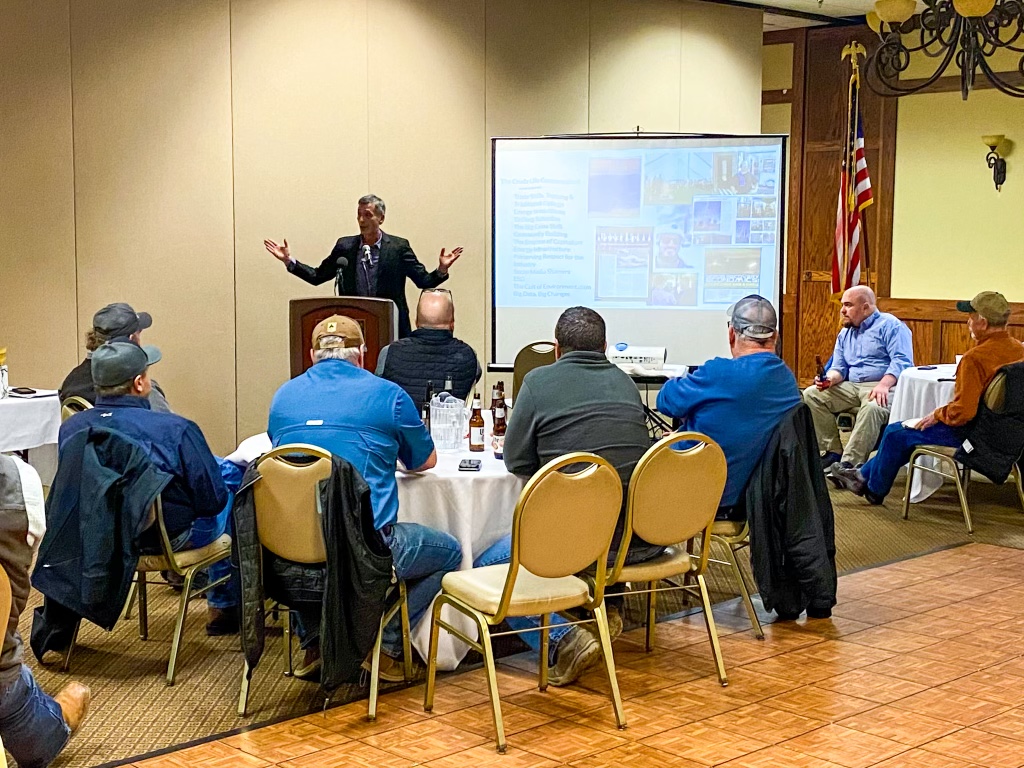
So if your firm advertises ESG strategies or makes claims to incorporate ESG criteria, the SEC will have Audit Agents to make sure your management practices do not involve materially false and misleading statements or omissions. It’s like another IRS, but for your ESG lifestyle.
Furthermore, the SEC has already flagged ESG investments as potentially higher-risk for investors due to a lack of standardized ESG terms, resulting in the SEC’s recent proposed rule is set to clarify and standardize climate-related disclosures.
What does all this mean? To this individual who has been speaking publicly about ESG issues since 2016, it’s nothing short than the homestretch of implementing an new ESG Regulation. Keep in mind no matter what your highly paid executives, lobbyists or elected officials say today, this current uniform disclosure framework known as an ESG Regulation officially began in February of 2013.
Class dismissed til next week.
Questions on today’s lesson? Know someone using Ethical Energy? ESG University wants to know who these leaders are as we continue to showcase and highlight ESG solutions in energy. For consideration, please email studio@thecrudelife.com companies, people and organizations showing ESG in action.
ESG University Classroom Column is written by Jason Spiess and no way reflects the mission or position of his other media companies. ESG University is an educational paper with classic newspaper op/ed elements sprinkled in. Because of this, we must categorize the column as Opinion and Editorial and run this disclaimer.
If anyone would like to schedule an interview, meeting or news tip email studio@thecrudelife.com
Industrial Integrity and Energy Ethics are the new entry level expectations in oil and gas, and The Crude Life continues to create original Local, Boots-On-The-Ground Journalism while showcasing other environmentally conscious companies.
Communication is vital in today’s energy extraction and empowerment.
About The Crude Life
The Crude Life produces original content that focuses on industry, the people, energy innovations, community building and it’s proactive culture. Our custom content is non-polarizing, trusted and often news making.
The Crude Life promotes a culture of inclusion and respect through interviews, content creation, live events and partnerships that educate, enrich, and empower people to create a positive social environment for all, regardless of age, race, religion, sexual orientation, or physical or intellectual ability.
Part of our mission is to enable people, companies and communities to affect change, demonstrate their transformative actions and drive energy awareness through storytelling and access to resources.
Sponsors, Music and Other Show Notes

Studio Sponsor: The Industrial Forest
The Industrial Forest is a network of environmentally minded and socially conscious businesses that are using industrial innovations to build a network of sustainable forests across the United States.
Weekly Sponsor: KBL Complete Services
Strikingly dynamic, incomparably strong and absolutely reliable, KBL Complete Services excels at all of your pipeline needs. From AGM Surveys, ILI tool tracking, Digsite Locating, and Equipment Decontamination, to Project Management, KBL Complete Services are ready to make your project a success.

Weekly Sponsor: Great American Mining Co
Great American Mining monetizes wasted, stranded and undervalued gas throughout the oil and gas industry by using it as a power generation source for bitcoin mining. We bring the market and our expertise to the molecule. Our solutions make producers more efficient and profitable while helping to reduce flaring and venting throughout the oil and gas value chain.

Join Podcasters from across the world and all walks of life as they unite to bring civil solutions to life and liberty.

Studio Email and Inbox Sponsor: To Be Announced

Featured Music: Alma Cook
For guest, band or show topic requests, email studio@thecrudelife.com
Spread the word. Support the industry. Share the energy.

